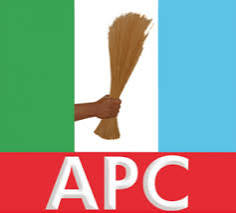
The Peoples Democratic Party (PDP), once considered the most formidable opposition in Lagos State, has gradually faded into political obscurity. A party that historically stood toe-to-toe with the ruling Alliance for Democracy, then the Action Congress of Nigeria, and now the All Progressives Congress (APC), has now all but vanished from relevance in the home state of President Bola Ahmed Tinubu.
The latest blow came with the defection of the party’s Lagos State Publicity Secretary, Alhaji Hakeem Amode, along with several other top-ranking leaders, to the APC. Their exit follows that of the PDP’s 2023 governorship candidate, Abdul-Azeez Olajide Adediran (popularly known as Jandor), who also returned to the APC—his former political base.
Observers see Amode’s departure not as a routine political realignment, but as the final nail in the coffin for what used to be a strategic opposition party in Lagos. Once seen as a viable alternative to the APC, the PDP in Lagos has become disjointed, leaderless, and virtually irrelevant.
The 2023 general elections were a harsh reality check. The PDP failed to win a single seat in the Lagos State House of Assembly, as the APC maintained dominance with 38 seats and the emerging Labour Party (LP) picked up 2. The trend continued in the House of Representatives, with APC securing 19 seats, LP taking 5, and the PDP again walking away empty-handed.
Perhaps the most striking indicator of the PDP’s decline was seen in the March 2023 governorship election. Governor Babajide Sanwo-Olu of the APC secured 762,134 votes, LP’s Gbadebo Rhodes-Vivour garnered 312,329, while Jandor of the PDP finished a distant third with just 62,449 votes—fewer than what the LP candidate polled in a single local government area. This marked the first time in two decades that the PDP didn’t even come second in a Lagos governorship race.
Jandor’s return to the APC came with harsh criticism of the PDP’s internal dynamics. He cited internal sabotage and lack of genuine support from party leadership as reasons for his departure, a move that signaled to many that the party had no future in Lagos. What followed was silence, confusion, and infighting within the party.
While the PDP wrestled with internal crises and legal distractions, a new political force emerged. The Labour Party, once insignificant in Lagos, surged forward powered by Peter Obi’s presidential run and the grassroots-fueled ‘Obidient Movement.’ Energized by young people, tech professionals, and first-time voters, the LP quickly filled the vacuum left by the PDP.
Today, with the next election cycle on the horizon, the PDP in Lagos appears to be on life support. It lacks clear leadership, a coherent policy direction, and most of its veteran strategists have crossed over to the APC.
Despite this, the Lagos PDP has rejected claims that its structure has collapsed. In a statement signed by the State Secretary, Soji Orioye, the party insisted it remains intact and capable.
“The claim by Amode that they have collapsed the PDP structure in the state is laughable and can best be described as a comic remark,” the statement read.
Still, not everyone is buying that optimism. Segun Yinka, a party member from Gbagada, accused the APC of systematically eroding the opposition in Lagos and across the country.
“The APC, under Tinubu, has done everything possible to frustrate the opposition—capturing not just political structures, but also institutions, the democratic space, and public trust,” Yinka said.
“They’re turning Nigeria into a one-party state. If truly free and fair elections are held, Tinubu would lose Lagos again.”
As it stands, the PDP’s struggle in Lagos seems less about a single wave of defections and more about a slow, painful unraveling that has been years in the making.
